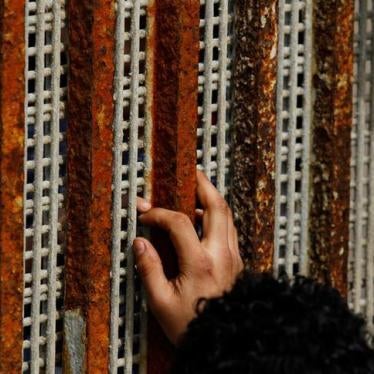The impact of President Donald Trump’s suggestion that he was going to pardon Joe Arpaio is palpable in Alamance County, North Carolina. As in Maricopa County, Arizona, where Arpaio was sheriff, the US Department of Justice investigated and eventually sued Alamance County Sheriff Terry Johnson in 2012, alleging racial profiling of Latinos. US Immigration and Customs Enforcement (ICE) subsequently revoked its 287(g) agreement with the county, which deputized the sheriff’s agents to assist ICE in enforcing federal immigration law. In 2015, a federal judge dismissed the lawsuit, but local residents continue to fear racial profiling and draconian immigration enforcement.
During my recent trip to Burlington, North Carolina, residents told me immigrants are doing everything they can to minimize their exposure to law enforcement. “People are waiting until the last minute to see the doctor,” said Blanca Nienhaus, a community advocate. Others reported that some undocumented immigrants, like others around the country, are reluctant to provide information when applying for Medicaid for their US citizen children or for prenatal benefits for which they are eligible.
“People only drive out of necessity,” another resident said to me. “We need to feed our children.”
During ICE arrests in January and February, community advocates said, some students stayed home from school. Martha Krall, a community advocate, noticed a “lower rate of kindergarten registration among Latino families in a school known for its larger Latino population.”
Father Paul Lininger of Blessed Sacrament Church has seen increased stress and anxiety among students who are fearful that parents won’t be there when they return home. “There had even been a request by a local school to hold parent-teacher conferences at the church instead of at school,” he said, as the school thought parents might see the church as a safer space. Lininger has been busy helping immigrants obtain Faith IDs – a non-government-issued ID theoretically accepted for a range of services – and organize documents, such as powers of attorney and birth certificates, in case family members are detained or deported.
The Trump administration has invited Johnson to rejoin the 287(g) program. There’s no formal agreement yet, but if 287(g) is reinstated, and if other law enforcement officials recognize Trump’s language on Tuesday as a carte-blanche for enforcement, the fear in Alamance County and communities like it around the country will only grow.
|
Dispatches
Trump’s Arpaio Comments Stoke Fear
Immigrants Wary Over Similar Situation in North Carolina
Your tax deductible gift can help stop human rights violations and save lives around the world.
Region / Country
Most Viewed
-
November 25, 2019
A Dirty Investment

-
May 12, 2025
The Gig Trap

-
April 27, 2021
A Threshold Crossed

-
January 23, 2018
Hidden Chains

-
September 30, 2024
“They Destroyed What Was Inside Us”





